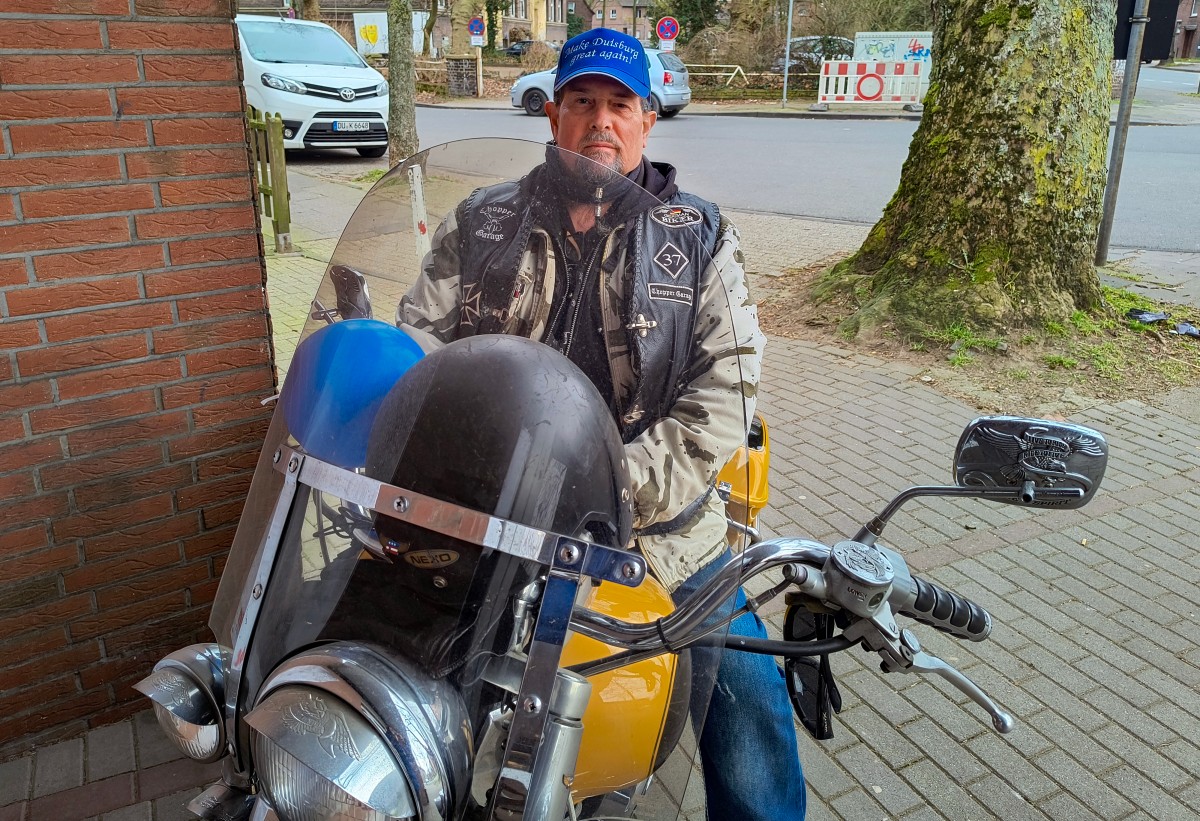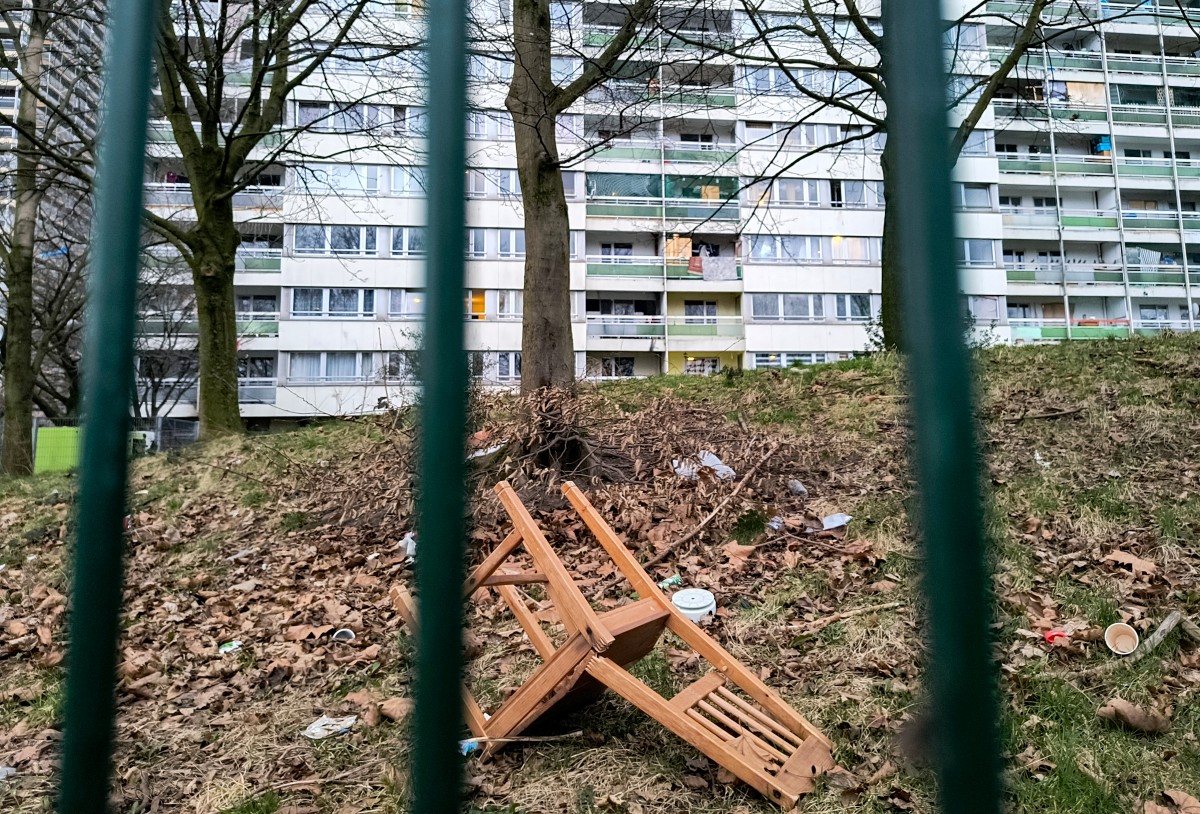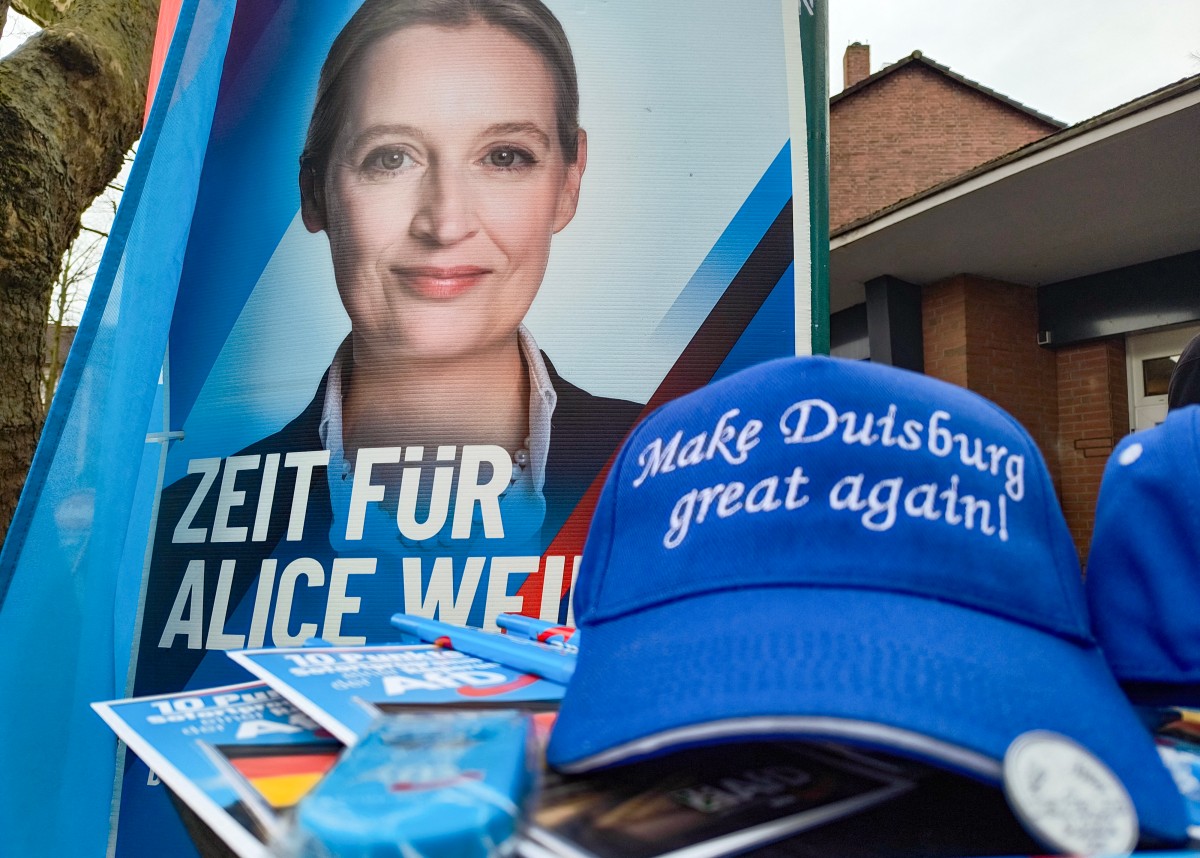"In the past, lots of people looked at us strangely or even insulted us -- that's hardly been the case this year," said the 51-year-old in the working class district of Duisburg North, as passing cars tooted horns in support.
The city in Germany's western Ruhr region highlights how the far-right has made progress beyond its traditional strongholds in Germany's ex-communist east ahead of Sunday's national election.
Duisburg is a steel town and traditional symbol of Germany's industrial might, and Duisburg North has long been a stronghold of the Social Democrats (SPD) of Chancellor Olaf Scholz.
But, as industrial decline has hit the city's fortunes, so the political landscape has shifted, with many SPD voters saying they no longer feel represented by the party.
Ludger Schulppen, a former SPD member who says he switched to backing the AfD, said the city is struggling in the face of a growing number of migrant arrivals that it cannot support.
"So many companies are closing, it's just not possible for people to come and just go and work," the 63-year-old told AFP.
He works for steel titan Thyssenkrupp, which last year announced it was cutting 11,000 jobs in the face of rising Asian competition.
"The mood is bad," Schulppen said. "Nobody knows who's affected, which departments are affected, what comes next."
Tax cuts and environmental deregulation backed by the AfD would help his industry, he argued.

Long migration history
Duisburg has a long history of welcoming newcomers, particularly after World War II when workers from Turkey and Italy arrived and helped power the country's "economic miracle".
Nowadays 58.3 percent of school children in Duisburg are migrants or the children of migrants, according to official data.
But, 10 years after Middle Eastern migrants began arriving in large numbers under former chancellor Angela Merkel, attitudes have hardened in the face of high-profile attacks and problems with integration.
"The people who come here are not people who have good jobs in their own countries," said Schulppen.
"They're people who come for the benefits on offer. I have plenty of Turkish colleagues who point out that they got nothing when they came over, they just came and worked."

The AfD's growing appeal highlights how the far-right party is making progress in western Germany, as it hopes for a record result of around 20 percent in Sunday's polls.
This would be second only to the centre-right CDU. The far right is not expected to be part of a new ruling coalition as mainstream parties have vowed to keep it out of power.
'Can't go on like this'
Duisburg has seen better days. Just 500,000 people call the city home, down from almost 600,000 in the mid-1970s.
Outside the town centre, abandoned buildings dot the cityscape.
On an estate nicknamed the "White Giants" -- which hit the headlines last year after postal firm DHL suspended deliveries there, citing threats to its staff -- cleaner Manuela Spitzwieser said she has shifted to supporting the AfD from the SPD.
The 54-year-old complained some residents "break everything and go on rampages," and throw rubbish from the upper floors of tower blocks, pointing to the rubbish-strewn playground.

Most Germans in her circle will vote AfD, she said, but insisted it was "not about chucking foreigners out".
"It's about deporting criminals. Deporting illegal migrants. Things can't go on like this."
Still it is not clear how successful the AfD -- which has received vocal backing from allies of US President Donald Trump -- will be in Duisburg given the city's long history of support for the SPD.
At a polling station in more affluent Duisburg South, some voters said they were sticking with the centre-left party.
"I've always voted SPD," Guenther Herwig, 67, told AFP. "It runs in the family -- my dad did, my granddad did."

Comments